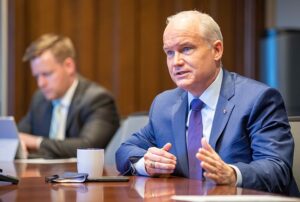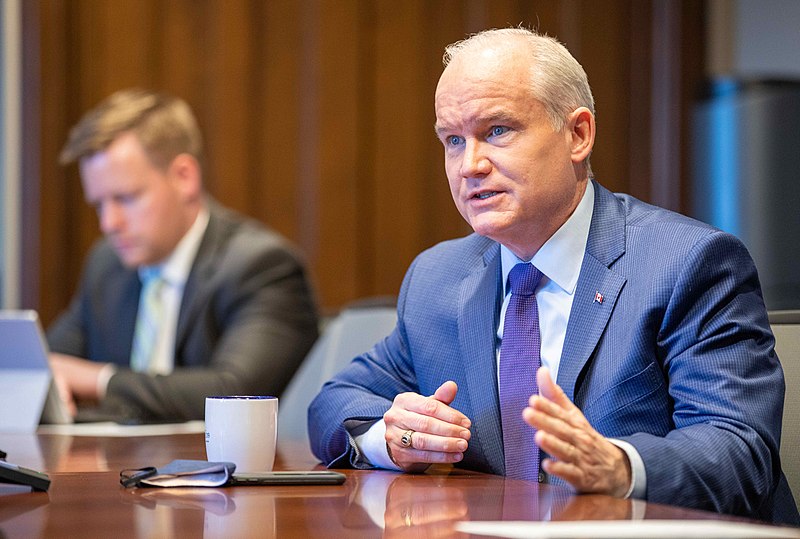Erin O’Toole ousted as Conservative leader

TORONTO – Erin O’Toole is no longer the leader of the Conservative Party. To force the now former leader of the party to the fateful step back was today the vote of no confidence by a very large majority of the members of the parliamentary group: as many as 73 deputies out of 119 expressed themselves against O’Toole and in favor of a new leadership, while only 45 mp reiterated their loyalty to the conservative leader.
According to the dictates of the new statute that regulates the internal life of the Conservative Party, a majority of votes would have been enough to dismiss the leader, therefore 60. The end result then certifies the level of creeping discontent with O’Toole. A poorly concealed discomfort, experienced by the base and the ruling class already in the aftermath of the defeat in the last electoral round on September 20th.
Immediately after the election, there were many creaks in O’Toole’s entourage as well as within the parliamentary group. But for months no MP had openly challenged the leader, leaving it to the base – that is, the individual local sections of the party – to repeatedly demand that the fate of the Tory secretary be put to a vote. At the same time, it was Senator Denise Batters who brought forward a similar request from the Upper House of the Canadian Parliament: in response, O’Toole had decided to throw her out of the caucus.
Now the same caucus has decided to give the blessing to O’Toole, who has led the party for seventeen months after winning the leadership race against Peter MacKay and after facing a single election, that of last fall, which according to the polls of the election campaign should have won.
But what were the causes of this ending already written within the Canadian right? In the report presented by former MP James Cumming, in which the potential reasons for the defeat at the polls were investigated, a strong discontent had emerged towards O’Toole for having constantly changed his mind on a very long list of issues, from the Carbon Tax to the register on firearms, passing through ethical issues and anti-Covid measures.
To seal these accusations, O’Toole’s last desperate attempt to remain in the saddle of the party: a heartfelt appeal to all deputies, with the promise of “being willing to change the required policies”.
Perhaps this was the straw that broke the camel’s back, the last element that pushed the undecided to vote against them. The small group of rebels, who came out in the open on Monday evening, has thus swelled its ranks, up to 73 deputies who have defenestrated the leader.
Now another page opens. The first step will be the appointment of an interim leader who will have to ferry the party to the end of the next leadership race.
The second step, more important, will instead be to identify the most suitable candidates who can challenge the great favorite to succeed O’Toole, that Pierre Poilievre that in Ottawa they all give as one of the main inspirers of the internal rebellion.
Two other ninety pieces, Prime Ministers Doug Ford and Jason Kenney, have already shelved the possibility of their possible candidacy. It is unlikely that MacKay has the intention of trying again, while some names that were already circulating in the past return to the track: Leslyn Lewis, Michelle Rempel Garner, Michael Chong, Brad Wall, Derek Sloan and now also Vice Admiral Mark Norman.



